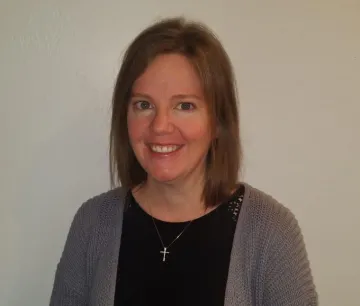
New Faculty Highlight: Dr. Amy Wheeler!
The University of Arizona and Living Well with Hearing Loss recently welcomed a new clinical audiologist to its faculty. We are very excited to have her join us and are looking forward to working with her. To get a look into Dr. Wheeler’s life and experience, we had a virtual interview with her. The interview went as follows:
Question (Q) asked by Savannah: Dr. Wheeler, how long have you worked as an audiologist? If you just finished school, where did you attend?
Answer (A) from Dr. Wheeler: I have worked as an audiologist for 15 years. I attended Utah State University (Go Aggies!) and came to Tucson for my 4th year externship. When I began my externship I planned to stay for just 1 year but like many of us ended up never leaving!
Q: What is your specialty/area of research?
A: My primary area prior to coming to UA was working as an ENT audiologist. I suppose this might not be considered a ‘specialty’ but many audiologists will tell you it is a unique environment. Some of my new projects here at UA are assisting with planning our Annual Audiology Conference and helping organize materials for the Southern Arizona Hearing Aid Bank.
Q: Why did you choose to work at UA?
A: There are many reasons for coming to work for UA! Prior to coming to work on campus, I had supervised students off-campus for 6 years, I enjoy students' optimism and enthusiasm for audiology. In some audiology jobs, it's not uncommon for 1 audiologist to work alone without another audiologist in the same building, I enjoy the collaboration with students and professors here at the U. Last but not least working here at UA allows me to spend more time with my husband and daughters.
Q: What part of LWHL’s mission do you connect with?
A: What I appreciate the most about LWHL is its focus on the whole patient. True audiology care is a conglomeration of medical evaluation, counseling, communication strategies, devices such as hearing aids, assistive listening equipment, implants, and family support. There is no ‘one size fits all approach and many patients benefit from ongoing support that comes from programs like LWHL.
Q: What part of your job do you find most rewarding?
A: The part of my job that I find the most rewarding is the relationships I’m able to develop through my work. Sometimes that comes from helping a patient overcome a particular challenge with their hearing other times it's helping a student feel confident in a particular task.
As we can see from her interview, Dr. Wheeler is bringing some great experience to the program, and we cannot wait to see what she does.
